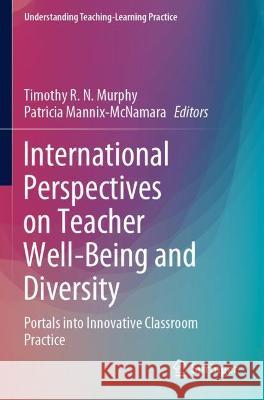International Perspectives on Teacher Well-Being and Diversity: Portals into Innovative Classroom Practice » książka
topmenu
International Perspectives on Teacher Well-Being and Diversity: Portals into Innovative Classroom Practice
ISBN-13: 9789811617010 / Angielski / Miękka / 2022
This book explores teacher well-being in light of the increasingly ethnically diverse profiles of schools and classrooms, focusing on socially and linguistically diverse teaching contexts. It draws attention to the socio-economic disadvantages that can often be characteristic of ethnically diverse classrooms, prior to examining and reviewing the interconnections between teacher well-being and the implementation of pedagogical processes in the classroom teaching and learning context. Teachers and academics alike report on and address the well-being-related needs of practising teachers.
This book contributes to the emerging field of literature on teacher well-being and offers international perspectives on lessons learnt in socially diverse and multilingual teaching contexts. Accordingly, it offers a valuable resource for teacher educators, researchers, pre-service and in-service teachers, and policymakers.











